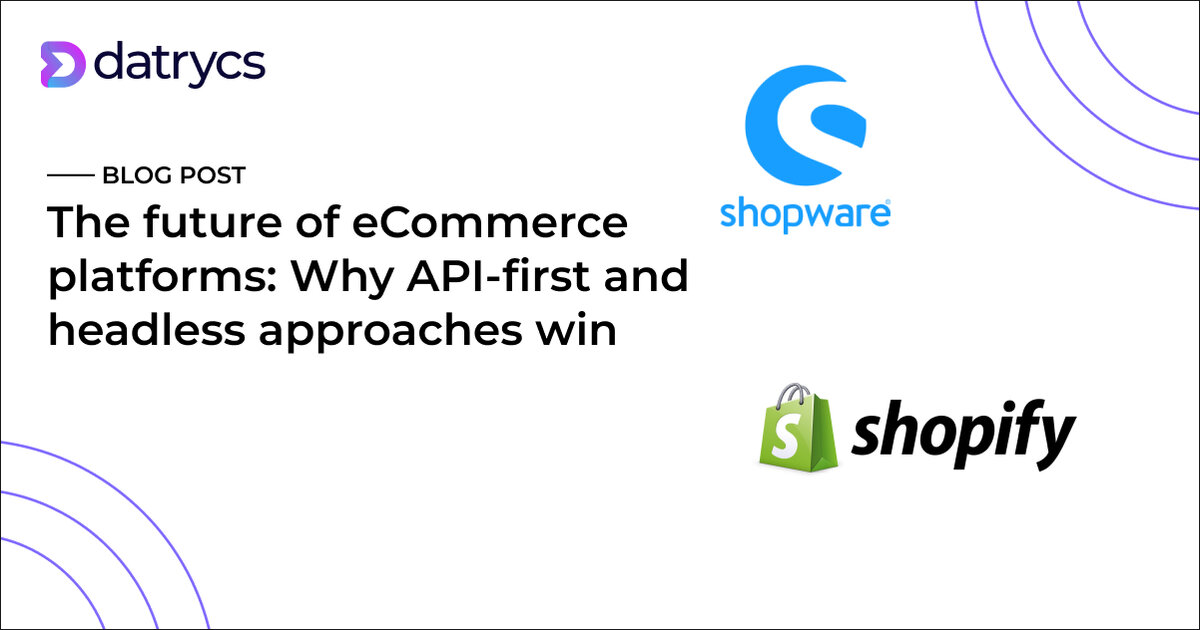Explore the capabilities of modern eCommerce platforms for integration
Integration is key to running efficient, scalable and customer focussed online businesses.



Modern e-commerce platforms offer many integration options to simplify things, improve customer experience and grow. Let’s dig in and explore these options.
The Importance of Integration
Integration means connecting an e-commerce platform to other software systems so data flows smoothly and processes are automated. That is why integration is so important:
- Operational Efficiency: Automation reduces manual data entry, mistakes and time.
- Better Customer Experience: Integrated systems mean a consistent experience across multiple touchpoints from browse to post purchase.
- Business Scalability: Integration allows you to add new tools and features without disrupting existing workflows.
Modern e-commerce platform integration options
Payment Gateways
Modern e-commerce platforms support multiple payment gateways like PayPal, Stripe and Square. This means customers can choose their preferred payment method which can increase conversions and reduce cart abandonment.
Shipping and Fulfillment Services
Integrations with shipping carriers like UPS, FedEx and DHL and fulfillment services like Fulfillment by Amazon (FBA) streamline order processing and tracking. Automated shipping updates and real-time tracking information means operational efficiency and customer satisfaction.
Customer Relationship Management (CRM)
Integration with CRM systems like Salesforce or HubSpot means businesses can manage customer data, track interactions and personalise marketing. This means better customer relationship management and loyalty programs.
Enterprise Resource Planning (ERP)
ERP integration means inventory, sales and financial data is synchronised across systems. Real-time data flow between the e-commerce platform and ERP systems like SAP or Oracle means better decision making and operational efficiency.
Marketing Automation
Platforms like Mailchimp, Klaviyo and Marketo can be integrated with e-commerce systems to automate email marketing, targeted campaigns and personalised promotions. These tools drive engagement and sales through targeted marketing.
Analytics and Reporting
Integration with analytics tools like Google Analytics or Adobe Analytics means customer behaviour, sales trends and marketing performance data. This data driven approach means businesses can optimise their strategies and operations.
What are the benefits
- Simplified Operations: Automating data transfer and processes means less manual work and all data is up-to-date. This means more efficient operations and fewer mistakes.
- Better Customer Experience: Integration connects all customer touchpoints for a seamless and cohesive shopping experience. Features like personalised recommendations and quick checkout mean customer satisfaction.
- Informed Decision Making: Integrated systems provide all the data needed for better decision making. Businesses can analyse trends, track performance and make adjustments in real-time based on facts.
- Agility: With integration businesses can respond quickly to market changes and customer demand. New features, tools or services can be added without major disruption and stay ahead of the competition.
- Cost Savings: Automating processes through integration means less manual intervention and lower operational costs. It also means avoiding costly mistakes and inefficiencies.
Challenges and Solutions
While the benefits are great, businesses may face challenges like compatibility issues, data silos and technical complexity. Here are the solutions:
- Compatibility Testing: Before you integrate, make sure the e-commerce platform and third-party tools are compatible and work together seamlessly.
- Data Management: Use middleware or integration platforms that transfer data smoothly and prevent data silos.
- Technical Support: Choose platforms that offer good technical support and documentation to help with the integration.
Summary
Integration is key to running efficient, scalable and customer focussed online businesses. By connecting all systems and tools businesses can simplify operations, offer better customer experiences and stay ahead in the fast paced digital world.
When choosing an e-commerce platform make sure to consider the integration capabilities so it meets your business needs and supports your growth. For more information and expert advice on e-commerce integration contact us.


